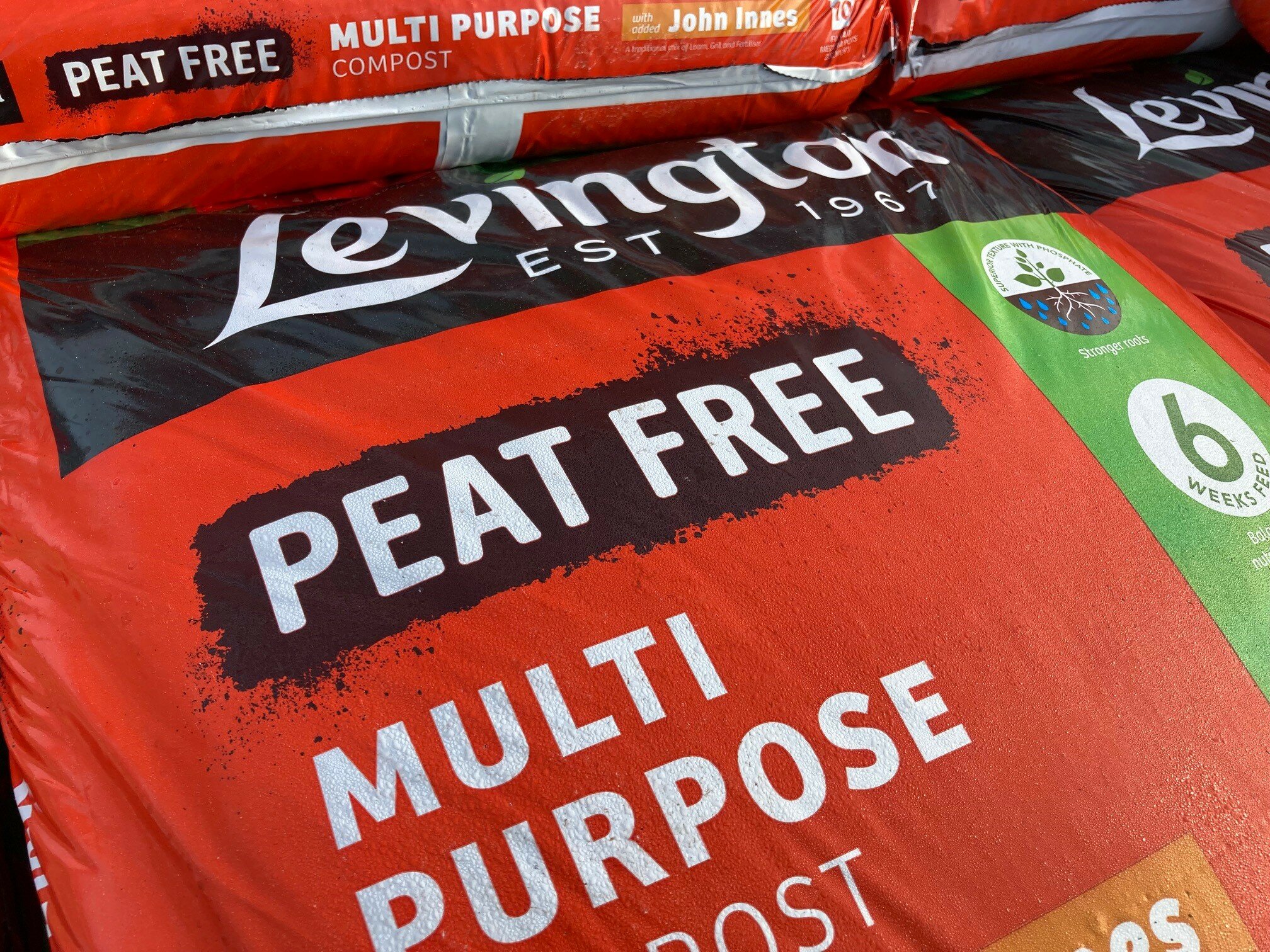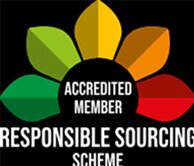Peat Free works differently

Why is peat-free important?
Peat is great for the planet when left in the ground as it supports wildlife and reduces the impact of climate change. Become a greener gardener by moving to peat free and make a real difference.
Using peat-free compost wisely
1. Check moisture levels: Peat-free compost can appear dry on the surface whilst remaining wet underneath. To avoid over-watering, check moisture by sticking your finger into the compost or lifting the pot to gauge its weight. If it is heavy or feels moist below the top 2cm of the surface, it likely has enough water.
2. Monitor plant health: Keep a close eye on your plants. Signs that they may need feeding include slowed growth, pale leaves or fewer flowers. If you notice these changes, start feeding regularly with a balanced, all-purpose plant food. To be on the safe side you can use a mild liquid feed from two weeks after potting.
3. Proper storage: Store your compost in a cool dry place to maintain its quality and effectiveness.
Peat Free Update

Throughout 2023 we gradually moved over to selling peat free compost at all our garden centres. In January & February of 2024 we launched our very own Thompson's Peat Free Multipurpose Compost, which completed our switch to only selling Peat Free products.
At Thompson's we share the public's concern in reducing peat use to help minimise the effects of global peat extraction on peat bog habitats. We will continue to:
- All of the compost and growing media we purchase from our suppliers is now Peat Free.
- We will only be selling Peat Free compost from February 2024.
- Our nurseries are continuing to grow larger quantities of our plants in peat free compost
Responsible Sourcing Scheme

The horticultural industry is working together to create responsibly sourced compost and soil mixes which lower potential impact on the environment.
It has been developed by the Growing Media Association under the auspices of the Horticultural trades Association and in collaboration with leading retailers, Defra and NGO's. It accesses the impact of each raw material that accounts for more than 5% of the volume of the mix against seven criteria. The criteria includes: Energy use, water use, social compliance, habitat & biodiversity, pollution, resource use efficiency, renewability.
At Thompson's, all the manufacturers that we purchase our growing media from are part of the Responsible Sourcing Scheme. To learn more about the scheme please visit RSS web site: www.responsiblesourcing.org.uk/scheme-measures
Growing Peat Free Plants
The big challenge to us as growers is producing high quality plants for our customers. We are finding that there is not enough green waste alternative products being produced by manufacturers at the moment for our growing nurseries. It is gradually changing, but taking time.
We currently grow plants, at our Greentiles nursery Isle of Wight, such as herbs, alpines, perennials and some of our bedding plants in peat free compost. Our Woodlands and Motspur Park nurseries are 50% reduced peat compost, and we aim to continue to improve this during over the next few years. All of the potted Christmas tree we grow are now grown in peat free compost
War on Plastic
For the past 4 years our nurseries have been growing plants in recyclable coloured plastic pots that are made from post consumable recycled material. They are 100% recyclable, and the raw material cycle is what they call a closed-loop. These pots can then be recycled kerbside by consumers. Look out for blue pots for our bedding plants range, herbs and vegetables. Grey pots are for all our shrubs, perennials and climbers
Water Saving
Our nurseries are able to store rainwater in large tanks to enable us to reuse it on our plants. This has dramatically cut down our on-site usage.
Plant Miles
90% of our plants are grown on our very own nurseries, which are all based in the south east of England. To put this into context our Woodlands nursery, which grows all our shrubs as well as some perennials and climbers, is just over the road from our Petham Garden Centre. That's zero plant miles! from there it is approximately 50 miles to our Chislehurst & Welling garden centres and 120 to our Isle of Wight garden centre.
Our Greentiles Nursery on the Isle of Wight, grows our perennials, alpines and herbs. They are less than a mile from our Newchurch Garden centre. All of our bedding plants are grown at our Motspur Park nursery which is in Surrey. This is around 40 miles away from our Chislehurst & Welling garden centres.
Sustainable Christmas Tree Farming
Thompson’s have been growing our own Christmas trees on the Isle of Wight for over 20 years now. A small team of knowledgeable, experienced, dedicated staff, lead by our head grower Peter, manage a 130 acre nursery that has close to 100,000 trees growing.
We are members of The British Christmas Tree Growers Association, who believe in the sustainable farming of Christmas trees. Did you know that the trees grow from taking carbon dioxide, the greenhouse gas CO2, out of the atmosphere. One Christmas tree will then release enough clean oxygen for at least 18 people!
For every tree that’s cut, another is planted, so there’s always a constant cycle of growing Christmas trees. This Spring we planted 7000 Nordman Fir trees and 3500 Spruce, some of which will still be in the ground 20 years from now.
Several years ago now, we installed bee hives on the nursery. Bees are so crucial to the environment, pollinating plants, helping plants to grow, breeding and producing food.
This year the beekeepers have had a nice lot of honey off the hives! On the right is a short video with Peter and the bee hives on the nursery, so you can see them in action yourself.
Wildlife Haven
On our Christmas tree nursery on the Isle of Wight, a reservoir was built about 30 years ago. It was landscaped all around the edges and, over the subsequent years, has matured into a wildlife haven. We reuse the water from the lake to irrigate fresh planting on the nursery.
The lake itself has a good range of fish as well as an abundance of beautiful Dragonflies and Damselflies, Coots, and Moorhens, and you can also find a resident Kingfisher. The trees surrounding the lake are homes to many birds, including Nuthatches, Tree Creepers and Woodpeckers.
On the farm we also have bee hives that produce an abundance of honey. The hives have been looked after by local bee keepers for the past few years. We've got a great video of them showing you the inside of the hives and all the honey combe. Take a look here
Out amongst the rows of Christmas trees, you might be lucky enough to see the local Buzzard perched on top of the larger trees or swooping down to catch its prey. You’ll often find giant grasshoppers jumping out at you whilst brushing through the trees. All of this creates a fantastic eco-friendly wildlife haven that spans the whole 130-acre site.







